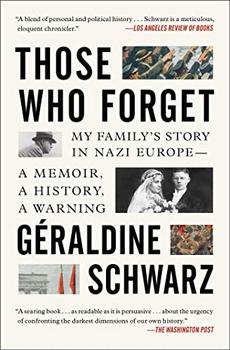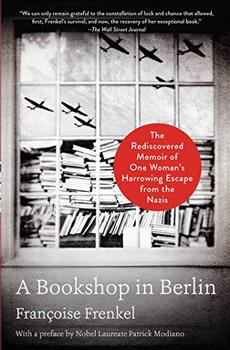Summary | Excerpt | Reviews | Beyond the book | Read-Alikes | Genres & Themes | Author Bio

Even as the author endures
the period of mass rape, she is conscious
that the period will end and that life will
return to 'normal'. She speaks of the German
soldiers who will return to Berlin on leave,
saying "they loved to tell their stories
which always involved exploits that showed
them in a good light. We on the other hand
will have to keep politely mum; each one of
us will have to act as if she in particular
was spared. Otherwise no man is going to
want to touch us any more."
She predicted correctly - when she showed
the diaries to her fiancé, Gerd, he returned
them to her without comment, and when A Woman in
Berlin was first published anonymously in German (five years after an English language version was published in 1954) it was greeted with
disgust by German audiences and
quickly went out of print. The
author was so shaken by the
response that she would not
allow her diary to be
republished until after her
death. In 2003 it was
republished in Germany to
critical acclaim and more
controversy, but also to a great
deal more recognition, empathy and
understanding. A retranslation
was published in English in
hardcover last year, and this
month in paperback.
Very little is known about
'anonymous', other than that she
was a journalist and editor
during the war, and lived out
her life in Germany, dying in
2003.
I spoke with the USA publisher
who said that, of course, they
know who she is but that they
are honoring her estate's wishes
in not revealing the
information. If you must know
more about her and happen to
speak German you will likely
find something on the internet
about her, as the German press
did investigate her background
when her diary was re-released
in Germany.
![]() This review was originally published in The BookBrowse Review in April 2006, and has been updated for the
August 2006 edition.
Click here to go to this issue.
This review was originally published in The BookBrowse Review in April 2006, and has been updated for the
August 2006 edition.
Click here to go to this issue.

If you liked A Woman In Berlin, try these:

by Géraldine Schwarz
Published 2022
Those Who Forget, published to international awards and acclaim, is journalist Géraldine Schwarz's riveting account of her German and French grandparents' lives during World War II, an in-depth history of Europe's post-war reckoning with fascism, and an urgent appeal to remember as a defense against today's rise of far-right nationalism.

by Francoise Frenkel
Published 2020
"A beautiful and important book" (The Independent) in the tradition of rediscovered works like Suite Française and The Nazi Officer's Wife, the prize-winning memoir of a fearless Jewish bookseller on a harrowing fight for survival across Nazi-occupied Europe.
Your guide toexceptional books
BookBrowse seeks out and recommends the best in contemporary fiction and nonfiction—books that not only engage and entertain but also deepen our understanding of ourselves and the world around us.